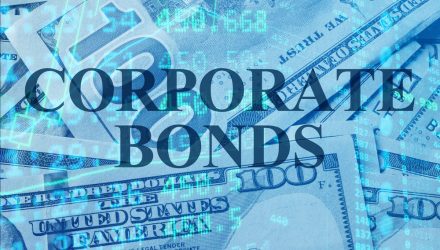Gone are the days when bonds could be used as a relative safe haven where a set it and forget it 60-40 stock-bond split served the majority of investors. Nowadays, bonds of the corporate variety have become much more popular and anything, but boring, especially given the Fed’s recent moves to shore up the bond market by purchasing corporate bond exchange-traded funds (ETFs).
In short, bonds have become the video gamers of the present time—nerdy back then, but the popular sports jocks today.
“Corporate bonds have never been so popular. Are they a safer investment than they used to be in a downturn, or just riding a wave of central-bank and index-fund money? Both could be true,” wrote Jon Sindreu in the Wall Street Journal. “U.S. companies have issued a record $1.2 trillion worth of bonds this year, according to Dealogic—a 78% increase relative to the comparable period of 2019. Even companies in the aviation industry like plane maker Boeing, which are expected to face years of depressed demand, have found buyers. Remarkably, issuance of junk bonds has jumped, too.”
Credit for the turnaround for bonds goes to the central bank for stepping in as the lender of last resort to help fuel the bond market. The added flow of capital helps with bond pricing and it allows cash-strapped companies the opportunity to issue more debt to stay afloat.
“If recent experience is any guide, this new system is fit for purpose: It provided some form of rational pricing during the selloff and now seems better than its predecessor at keeping the credit taps open for corporate America,” Sindreu wrote. “It may not stretch to making companies invest if the recession drags on, but could still mellow the financial element of economic cycles identified in the Bank for International Settlements (BIS) report.”
If investors aren’t willing to assume the risk of high yield debt issues, there are also investment grade options to consider. ETFs in this category include the iShares Intermediate Credit Bond ETF (NASDAQ: CIU), iShares iBoxx $ Investment Grade Corp Bd ETF (NYSEArca: LQD) and Vanguard Interm-Term Corp Bd ETF (NASDAQ: VCIT).
More Access to Corporate Bonds
With the Federal Reserve stepping in to purchase corporate bonds to help keep the economy afloat, one ETF to consider is the Goldman Sachs Access Investment Grade Corporate Bond ETF (GIGB). GIGB seeks to provide investment results that closely correspond to the performance of the FTSE Goldman Sachs Investment Grade Corporate Bond Index.
The fund seeks to achieve its investment objective by investing at least 80% of its assets (exclusive of collateral held from securities lending) in securities included in its underlying index. The index is a rules-based index that is designed to measure the performance of investment grade, corporate bonds denominated in U.S. dollars that meet certain liquidity and fundamental screening criteria.
For more market trends, visit ETF Trends.








